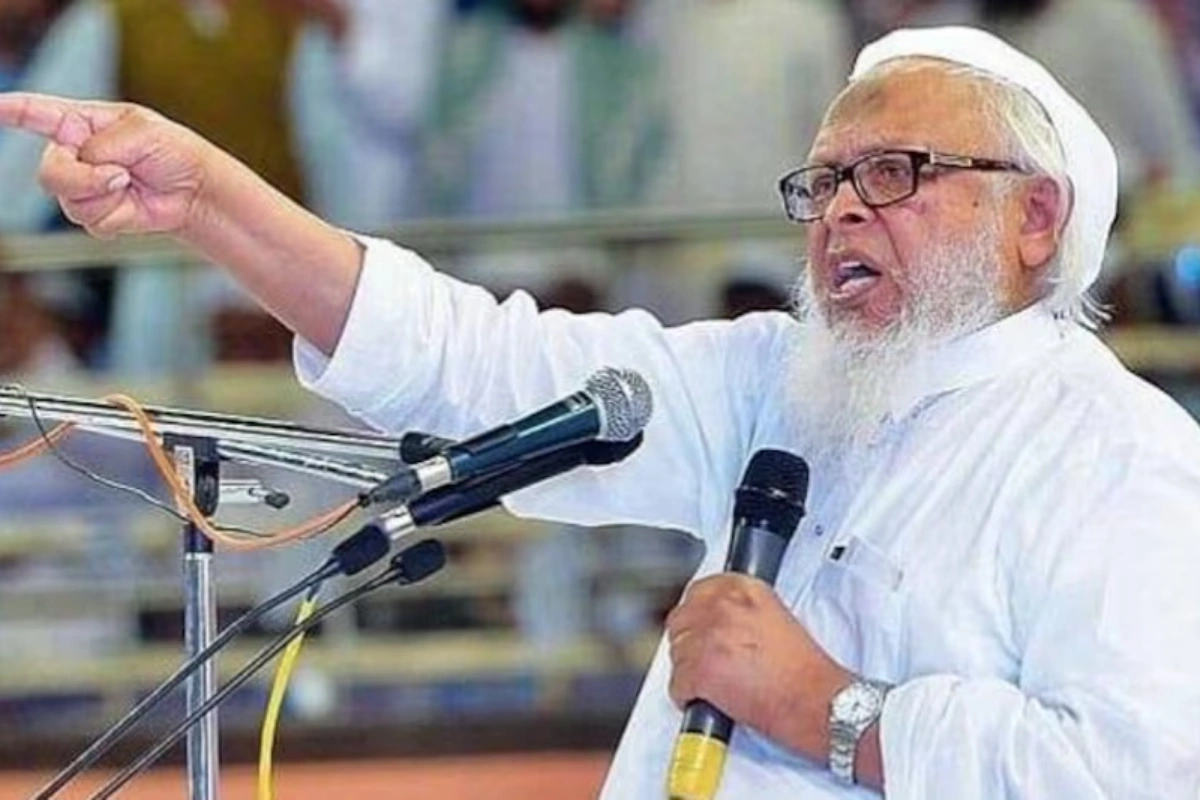Jamiat Ulema-e-Hind president Maulana Arshad Madani has thrown himself into the center of a political storm by defending Al Falah University just as it faces a major investigation. He didn’t hold back—he said Muslims in India face systematic suppression, and he accused the government of trying to keep them from “raising their heads.” The BJP isn’t having any of it. They slammed his comments as divisive and hypocritical.
So, what exactly did Madani say?
Madani claimed that in India, if you’re Muslim, even becoming a university vice-chancellor comes with a cost. He pointed out that the founder of Al Falah University is in jail, using that as proof of his point.
He drew a sharp contrast: “A Muslim like Mamdani can become the mayor of New York, a Khan can lead London, but in India, even being a Muslim VC can land you in jail—just look at Azam Khan.” According to him, the government is trying to pull the rug out from under Muslims, making sure they never get a chance to stand tall.
DON'T MISS
On Al Falah, Madani urged people not to spread rumors and said the whole university shouldn’t be blamed just because its founder is facing legal trouble.
How did the BJP fire back?
The BJP didn’t mince words. Party spokesperson Yaser Jilani called Madani’s claims “misleading,” accusing him of trying to scare the Muslim community.
Jilani pointed out what he saw as a contradiction: Madani says Muslims are powerless in India but then praises successful Muslim leaders abroad, like Zohran Mamdani and Sadiq Khan.
The BJP also went after Madani personally, accusing his family of talking a big game about helping minorities while doing little for their welfare. On Al Falah, BJP leaders questioned why Madani is defending a university under investigation, saying he’s just trying to distract from “real legal violations.”
The bigger picture
At its core, Madani’s argument is about representation. He wants to see more Muslims in top academic posts in India. By comparing Muslim leaders abroad to those at home, he’s highlighting what he sees as real barriers here.
But not everyone in the Muslim community backs him. IAS officer Niyaz Khan shot back, pointing out that educated Muslims are already making a mark—mayors, governors, and more. “Education is a cure,” he said, pushing back against Madani’s focus on victimhood.
This whole debate comes at a tense time. The Delhi blast probe has put Al Falah University in the spotlight, and Madani’s comments are only adding fuel to the fire.
Some Congress leaders, like Udit Raj, have come out in support of Madani, saying that any claims of discrimination deserve a serious look, not just a quick dismissal as fear-mongering.
Madani’s defense of Al Falah is about more than just one university. He’s making a broader point about how Muslims are treated in India, talking about dignity and equal opportunity. The BJP sees it as pure politics—a double game. Whether Madani’s words spark change or just deepen the rift depends on what happens next. One thing’s certain: this isn’t just some academic spat. It’s become a flashpoint in India’s ongoing fight over minority rights and political voice.
